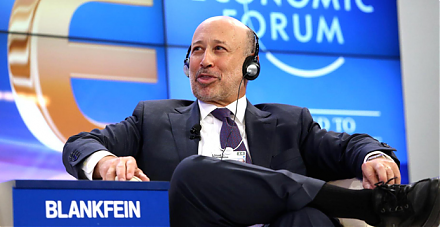

2018-01-21 07:25:00 Sun ET
stock market competition macrofinance stock return s&p 500 financial crisis financial deregulation bank oligarchy systemic risk asset market stabilization asset price fluctuations regulation capital financial stability dodd-frank
As he refrains from using the memorable phrase *irrational exuberance* to assess bullish investor sentiments, former Fed chairman Alan Greenspan discerns asset bubbles in the American stock and bond markets in early-2018. Despite the recent healthy fundamental recalibration, Greenspan warn of high U.S. stock indices from Dow and S&P 500 to NASDAQ and Fortune 500. Also, Greenspan points out that the current government bond yields hover not far from historically low thresholds. The latter may transform into potential U.S. bond yield curve inversion, which often signals the early dawn of an economic recession. This inversion correctly predicts U.S. economic downturns in all decades after the 1960s. As the Federal Reserve gradually normalizes and tightens its core monetary policy, interest rates continue to raise the relative likelihood of bond yield curve inversion. Greenspan shares his ingenious insight that higher long-term government bond yields may determine the extent and duration of bullish investor sentiments during the current interest rate hike. Whether the Trump team addresses the fiscal gap with $2 trillion government expenditures and $1.5 trillion tax cuts depends on the future U.S. real GDP growth trajectory. The Trump administration expects 3%-3.5% real GDP economic growth for this self-finance to trickle down to the typical American. Greenspan's prescient comments warn of the current fiscal shortfall that may fuel U.S. debt escalation as a proportion of total real GDP.
If any of our AYA Analytica financial health memos (FHM), blog posts, ebooks, newsletters, and notifications etc, or any other form of online content curation, involves potential copyright concerns, please feel free to contact us at service@ayafintech.network so that we can remove relevant content in response to any such request within a reasonable time frame.
2020-05-05 09:31:00 Tuesday ET

Our fintech finbuzz analytic report shines fresh light on the fundamental prospects of U.S. tech titans Facebook, Apple, Microsoft, Google, and Amazon (F.A.
2023-07-21 10:30:00 Friday ET

Joseph Stiglitz and Andrew Charlton suggest that free trade helps promote better economic development worldwide. Joseph Stiglitz and Andrew Charlton (200
2017-05-31 06:36:00 Wednesday ET

The Federal Reserve rubber-stamps the positive conclusion that all of the 34 major banks pass their annual CCAR macro stress tests for the first time since
2018-05-25 07:30:00 Friday ET

President Trump introduces $50 billion tariffs on Chinese products and new limits on Chinese high-tech investments in America. This new round of tariffs
2018-08-17 11:45:00 Friday ET

In accordance with the extant corporate disclosure rules and requirements, all U.S. public corporations have to report their balance sheets, income statemen
2017-01-27 17:19:00 Friday ET

Tony Robbins explains in his latest book on personal finance that *patience* is the top secret to successful stock investment. The stock market embeds an